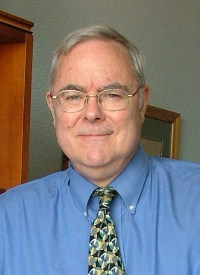 Time Warner Cable executives got an earful last week from investors concerned about the amount of money the company is spending on lobbying activities, the lack of full disclosure on where that money is going, and the cable operator’s continued corporate support for the American Legislative Exchange Council (ALEC).
Time Warner Cable executives got an earful last week from investors concerned about the amount of money the company is spending on lobbying activities, the lack of full disclosure on where that money is going, and the cable operator’s continued corporate support for the American Legislative Exchange Council (ALEC).
Among those attending the Time Warner Cable Annual Shareholder Meeting in Saratoga Springs, N.Y., was Tim Smith from Walden Asset Management, which owns 369,000 shares of the company.
Smith, along with 16 co-sponsors, introduced a proposal to force better disclosure of how their shareholder money was being spent on lobbying, noting Time Warner Cable paid close to $28 million on lobbying from 2008 to 2012.
“It’s interesting to note that Time Warner Cable’s spending on lobbying was almost five times the average of its peers,” Smith told the board of directors.
Smith noted that Time Warner Cable’s current quarterly disclosures were opaque and hard for the average person to understand and that the company provided almost no information on state lobbying, which he called a “big, big gap.”

Smith
“You [also] do not disclose details of the amount of dues to trade associations that engage in lobbying nor the portion used for lobbying,” Smith complained. “So for example, if a company is a member of the Business Roundtable or the U.S. Chamber of Commerce, over 40% of those dues are spent on lobbying. So we think that is important to be a disclosed and in the public record.”
Smith noted that Time Warner Cable abandoned its financial support of The Heartland Institute, a Koch Brothers’ backed group that has argued for deregulation of the telecommunications industry, fought against Net Neutrality, and supports consumption billing and usage caps. A number of corporations stopped supporting the group after its corporate contribution list was leaked to the media in early 2012. Time Warner Cable told Walden Capital Management it dropped support of the group later that same year.
But Smith remained unhappy Time Warner Cable continues to support ALEC.
“Time Warner Cable’s continuing support for the American Legislative Exchange Council, which is called ALEC, is highly controversial and really we think it’s harmful to our brand,” Smith argued. “Right now, the American Legislative Exchange Council is working with The Heartland Institute, where we withdrew, working on a campaign around this country to try to stop renewable energy legislation and regulation. That’s our money at work, and we’re not dissenting. We’re not standing up and saying, ‘This is not Time Warner Cable.'”
CEO Glenn Britt claimed the lobbying expenses were important because Time Warner Cable is “a highly regulated company in a highly regulated industry” and that the company exercises “a value judgment” when it chooses to support third-party groups and lobbyists.
Britt also acknowledged ALEC’s extensive database of model, pre-written legislation suitable for introduction on the state level has proved very useful to Time Warner Cable in the past.
“[ALEC] is very helpful in creating a model legislation for all the states we do business in,” Britt said. “They’re particularly focused on telecom matters, which are highly complicated.”
As for other activities ALEC is involved with, such as opposing renewal energy initiatives for large fossil fuel energy companies, Britt said he does make Time Warner Cable’s views known on those issues.
“Quite honestly, if we thought the objectionable part of that outweighed the benefit, then we would consider leaving,” Britt said. “But it’s a constant balancing of that.”
“Although we fully understand the motivation […] the board recommends a vote against this proposal,” Britt concluded.

Time Warner Cable chose the prestigious Gideon Putnam Resort in Saratoga Springs for its annual shareholder meeting, where rooms run $400-800 a night.
Jim Voye from the International Brotherhood of Electrical Workers (IBEW), a union that owns about 575,000 shares of Time Warner Cable, also rose to introduce a proposal to limit a potential cash cow for executives in the event of a change in control at the company.
CEO Glenn Britt is widely expected to retire at the end of this year. When he does, he will be awarded more than $50 million in Time Warner Cable stock-based awards. That is on top of his targeted annual salary of $16 million.

Time Warner Cable’s CEO spent $400,000 of the company’s money traveling on the corporate executive jet.
In the event of such a change, many Time Warner Cable executives will qualify for accelerating vesting of their own equity awards, which the IBEW argues is an incentive to favor short-term improvements in company performance at the cost of long-term growth.
“The vital connection between pay and long-term performance can be severed when awards are paid out at an accelerated schedule,” Voye argued. “A change in control event should not provide an immediate or automatic economic windfall to planned participants, especially one that could incentivize executives to pursue transactions that are not in the best long-term interest of shareholders.”
Britt recommended a vote against that proposal as well.
During a question and answer section, Smith noted Britt spent $400,000 of the company’s money on corporate jet travel expenses.
Britt also acknowledged the cable industry’s business model has been largely the same across the country, and there is little to differentiate the financial results of one cable company over others.
“We, the cable companies all tend to look the same and I don’t think it’s going to be any different in this case,” Britt said.
 Time Warner Cable customers in Central New York will be the first to test the cable company’s newest plan for a nationwide channel realignment that will move almost every cable channel into a new “theme-based” lineup.
Time Warner Cable customers in Central New York will be the first to test the cable company’s newest plan for a nationwide channel realignment that will move almost every cable channel into a new “theme-based” lineup. Time Warner Cable has used a theme/genre-based channel lineup for several years, but new or renamed networks have occasionally turned up in unexpected places. The increasing prevalence of HD networks has also made a mess of things, with some markets featuring HD basic cable networks nestled between premium movie channels. The channel realignment is designed to “simplify” things.
Time Warner Cable has used a theme/genre-based channel lineup for several years, but new or renamed networks have occasionally turned up in unexpected places. The increasing prevalence of HD networks has also made a mess of things, with some markets featuring HD basic cable networks nestled between premium movie channels. The channel realignment is designed to “simplify” things.

 Subscribe
Subscribe Time Warner Cable executives
Time Warner Cable executives 



 The company is mailing letters to affected television subscribers advising them to get a Time Warner Cable DVR, traditional set-top box, CableCARD or Digital Adapter (DTA). For secondary televisions, Time Warner’s new DTA for downstate New York is the Cisco DTA 170HD, which supports both High Definition and Standard Definition channels and digital-only QAM tuning up to 1GHz. This model is also capable of providing HD premium channels, which are currently not available to customers with earlier generation DTAs. It is unknown if Time Warner will support that functionality.
The company is mailing letters to affected television subscribers advising them to get a Time Warner Cable DVR, traditional set-top box, CableCARD or Digital Adapter (DTA). For secondary televisions, Time Warner’s new DTA for downstate New York is the Cisco DTA 170HD, which supports both High Definition and Standard Definition channels and digital-only QAM tuning up to 1GHz. This model is also capable of providing HD premium channels, which are currently not available to customers with earlier generation DTAs. It is unknown if Time Warner will support that functionality.

 Time Warner Cable is seeking a patent for technology to let cable subscribers watch DVR recordings on mobile devices including tablets, smartphones, and computers outside of the home.
Time Warner Cable is seeking a patent for technology to let cable subscribers watch DVR recordings on mobile devices including tablets, smartphones, and computers outside of the home.